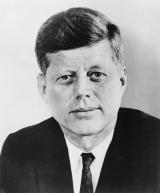Kto umawiał się z Marlene Dietrich?
John Wayne umawiał się z Marlene Dietrich od ? do ?. roku Różnica wieku wynosiła 5 lata, 4 miesięcy i 29 dni.
Jean Gabin umawiał się z Marlene Dietrich od ? do ?. roku Różnica wieku wynosiła 2 lata, 4 miesięcy i 20 dni.
John Fitzgerald Kennedy umawiał się z Marlene Dietrich od ? do ?. roku Różnica wieku wynosiła 15 lata, 5 miesięcy i 2 dni.
Yul Brynner umawiał się z Marlene Dietrich od ? do ?. roku Różnica wieku wynosiła 18 lata, 6 miesięcy i 14 dni.
Wilhelm Michel umawiał się z Marlene Dietrich od do ?. roku
Erich Maria Remarque umawiał się z Marlene Dietrich od do ?. roku Różnica wieku wynosiła 3 lata, 6 miesięcy i 5 dni.
Marlene Dietrich

Marie Magdalene "Marlene" Dietrich (, German: [maʁˈleːnə ˈdiːtʁɪç] ; 27 December 1901 – 6 May 1992) was a German-American actress and singer whose career spanned nearly seven decades. In 1920s Berlin, she performed on the stage and in silent films. Her performance as Lola Lola in Josef von Sternberg's The Blue Angel (1930) brought her international acclaim and a contract with Paramount Pictures. Dietrich starred in many Hollywood films, including six roles directed by Sternberg: Morocco (1930) (her only Academy Award nomination), Dishonored (1931), Shanghai Express and Blonde Venus (both 1932), The Scarlet Empress (1934), The Devil Is a Woman (1935). Throughout World War II, she was a high-profile entertainer in the United States. Although she delivered notable performances in several post-war films, including Billy Wilder's A Foreign Affair (1948), Alfred Hitchcock's Stage Fright (1950), Billy Wilder's Witness for the Prosecution (1957), Orson Welles's Touch of Evil (1958), and Stanley Kramer's Judgment at Nuremberg (1961), she spent most of the 1950s to the 1970s touring the world as a marquee live-show performer.
Dietrich was known for her humanitarian efforts during World War II, housing German and French exiles, providing financial support and advocating their American citizenship. For her work on improving morale on the front lines during the war, she received various honors from the United States, France, Belgium, and Israel. In 1999, the American Film Institute named Dietrich the ninth greatest female screen legend of classic Hollywood cinema.
Czytaj więcej...John Wayne

John Wayne, właśc. Marion Michael Morrison (ur. 26 maja 1907 w Winterset, zm. 11 czerwca 1979 w Los Angeles) – amerykański aktor, reżyser i producent filmowy, który zdobył popularność głównie dzięki rolom w westernach, jedna z największych legend Hollywood. Symbol amerykańskiego indywidualizmu i patriotyzmu.
Odznaczony Złotym Medalem Kongresu i Prezydenckim Medalem Wolności. American Film Institute umieścił go na 13 miejscu w rankingu 50 największych legend amerykańskiego ekranu (The 50 Greatest American Screen Legends).
8 lutego 1960 otrzymał własną gwiazdę w Alei Gwiazd w Los Angeles znajdującą się przy 1541 Vine Street.
Czytaj więcej...Marlene Dietrich

Jean Gabin

Jean-Alexis Gabin Moncorgé (ur. 17 maja 1904 w Paryżu, zm. 15 listopada 1976 w Neuilly-sur-Seine) – francuski aktor filmowy i teatralny.
Czytaj więcej...Marlene Dietrich

John Fitzgerald Kennedy

John Fitzgerald Kennedy, powszechnie określany inicjałami „JFK” (ur. 29 maja 1917 w Brookline, zm. 22 listopada 1963 w Dallas) – amerykański polityk, 35. prezydent Stanów Zjednoczonych (1961–1963).
Czytaj więcej...Marlene Dietrich

Yul Brynner

Yuliy Borisovich Briner (Russian: Юлий Борисович Бринер; July 11, 1920 – October 10, 1985), known professionally as Yul Brynner (Russian: Юл Бриннер), was a Russian and American actor. He was known for his portrayal of King Mongkut in the Rodgers and Hammerstein stage musical The King and I (1951), for which he won two Tony Awards, and later an Academy Award for Best Actor for the 1956 film adaptation. He played the role 4,625 times on stage, and became known for his shaved head, which he maintained as a personal trademark long after adopting it for The King and I.
Considered one of the first Russian-American film stars, he was honored with a ceremony to put his handprints in front of Grauman's Chinese Theatre in Hollywood in 1956. He also received a star on the Hollywood Walk of Fame in 1960.
In 1956, Brynner received the National Board of Review Award for Best Actor for his portrayals of Rameses II in the Cecil B. DeMille epic The Ten Commandments and General Bounine in Anastasia. He was also well known as the gunman Chris Adams in The Magnificent Seven (1960) and its first sequel, Return of the Seven (1966). He had roles as the android "The Gunslinger" in Westworld (1973) and its sequel Futureworld (1976).
In addition to his film credits, he worked as a model and photographer, and wrote several books.
Czytaj więcej...Marlene Dietrich

Wilhelm Michel
Wilhelm Michel, genannt Willy Michel (geboren 1901; gestorben Juni 1988) war ein deutscher Bäcker, Kommunalpolitiker in Hannover, Wehrwirtschaftsführer für Niedersachsen sowie Liebessubjekt der Schauspielerin Marlene Dietrich. Die Anfang des 21. Jahrhunderts aufgefundenen Liebesbriefe der Dietrich an Wilhelm Michel gelten als „die frühesten bislang bekannten Dokumente des Weltstars.“
Czytaj więcej...Marlene Dietrich

Erich Maria Remarque

Erich Maria Remarque, właśc. Erich Paul Remark (ur. 22 czerwca 1898 w Osnabrück, zm. 25 września 1970 w Locarno) – niemiecki pisarz, dramaturg, dziennikarz, weteran I wojny światowej. Do jego najwybitniejszych dzieł należą powieści Na Zachodzie bez zmian (1929) i Łuk triumfalny (1945).
Czytaj więcej...